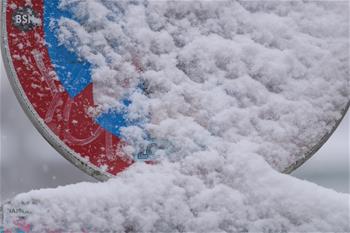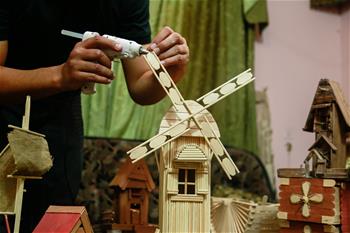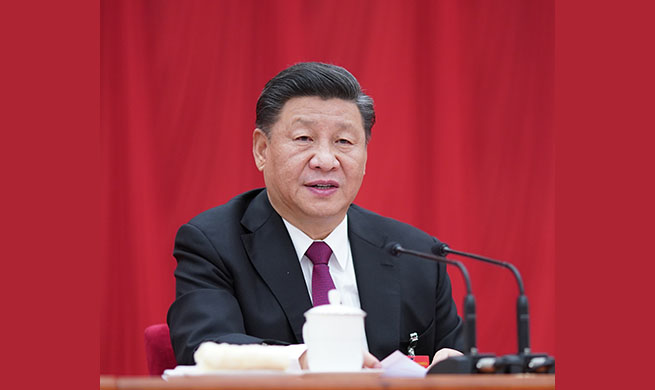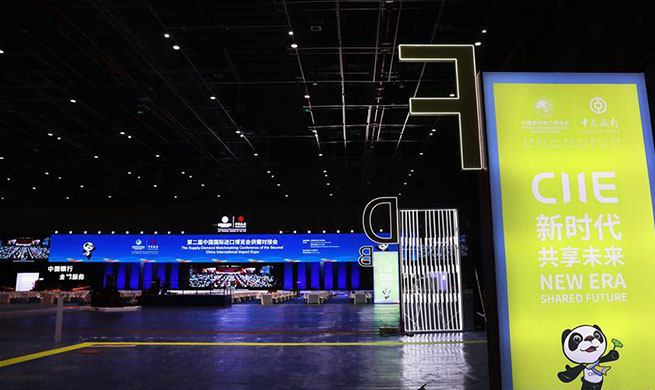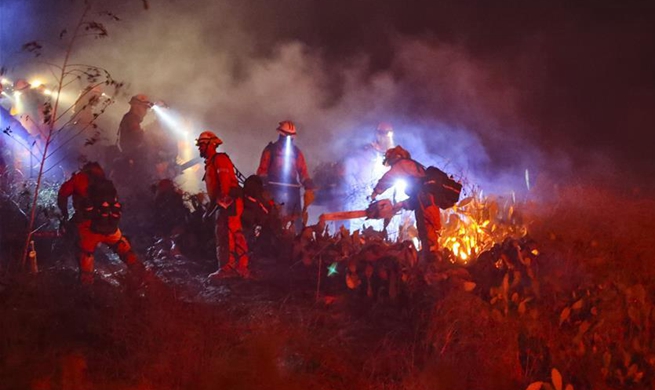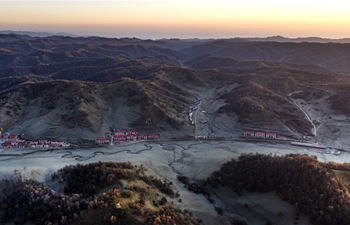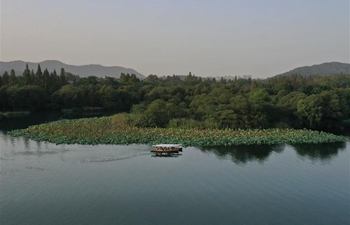by Lu Yifan and Yao Yuan
CHONGQING, Oct. 31 (Xinhua) -- Most people regard static electricity as a nuisance, but when the phenomenon struck children's sci-fi writer Zhang Zhilu in the 1980s, it inspired him to create a sci-fi work about an electric youngster named "Wonder Boy."
If a child's body was constantly full of static electricity that was strong enough to prevent others from approaching him, what would happen? Zhang recalled the question that inspired his highly popular novel.
In an era when science and technology began to be hailed as the "primary productive forces" in China, the wildly imaginative story influenced a generation of Chinese. It was so popular that a film adapted from it became a major hit in 1988.
Its immense success has continued to inspire today's sci-fi writers, who have fought for years against the prejudice that the literary genre was merely "children's reading," but who nevertheless stress sci-fi's role in kindling the love for science among China's future generations.
During a just-concluded forum on sci-fi works for children, which was part of the three-day 10th Xingyun (Nebula) Awards held in Chongqing, "sci-fi education" was the subject of heated discussion. Many of China's well-known sci-fi figures including Han Song and Wang Jinkang, and sci-fi writers who target children and teenagers, including Zhang Zhilu, Peng Xuluo, Chao Xia and Yang Peng, attended the forum to share their insights.
"If you care about China's future, you need to pay attention to Chinese sci-fi; if you care about Chinese sci-fi, you need to hone in on what the children are thinking," said Han Song.
In recent years, Chinese children and teenagers have embraced an increasing number of science fiction works created specially for them, including Hugo Award-winner Liu Cixin's sci-fi series for children, which is comprised of some of the most popular novels picked and adapted by him, "Three Musketeers on Campus" and "The Great Detective in the Ear" written by Yang Peng, a children's author.
Peng Xuluo, an author of numerous adventurous sci-fi stories for children and an adventurer himself, said sci-fi works for young readers feature three characteristics: fantasy grounded in science, a focus on children and an adventurous spirit.
He said that many of his works were finished during his explorations.
"Every child bears a curiosity about nature and expectations of the unknown world. Nowadays, however, children are quite far from nature and lack the opportunities to probe into the unknown world, so it's hard for kids to understand nature's force, both subtle and magical," he said.
Peng noted that the history of humanity is full of explorations and adventures, such as the discovery of the new continent and the moon landing, which reflect both an adventurous spirit and human progress.
"Advocating for youngsters to read adventure-themed sci-fi works doesn't mean to encourage them to take risks, but to teach them to be brave whenever they are met with difficulties and obstacles," he said.
China's first sci-fi boom started in the early 20th century when the then impoverished, war-torn country sought the help of science for national rejuvenation. The rapid industrialization in the 1950s and the reform and opening-up policy introduced in the late 1970s also kicked off rounds of sci-fi fever.
In recent years, China has witnessed renewed public enthusiasm for sci-fi, coming at a time when the country is pushing for technological innovation. Chinese writers Liu Cixin and Hao Jingfang winning Hugo Awards also helped bring the once marginalized literary genre into the mainstream.
"The most fascinating thing about children's sci-fi works is expressing a story in a way that children can understand. The works must be interesting, attractive and close to the child's heart. Only in this way can it become an excellent sci-fi work fit for youngsters," said Chao Xia, a sci-fi writer.
Sci-fi writers are not alone in fueling the curiosity and imagination of children.
Zhou Qun, a Chinese teacher at Beijing Jingshan School, is committed to popularizing sci-fi education across the country.
To cultivate students' creative and scientific thinking, the Chinese-language teacher teaches not only sci-fi classics required by the curriculum, such as "Twenty Thousand Leagues Under the Sea" by Jules Verne and "Foundation" by Isaac Asimov, but also sci-fi and fantasy works of her own choosing, including "The Three-Body Problem," and "The Wandering Earth" written by Liu.
"Propelled by curiosity and the will to explore the unknown world and influenced by the education I received when I was a child, I started popularizing sci-fi education," said Zhou, who in 2016 set up an optional sci-fi course together with her colleagues.
"In the past, sci-fi works brought me a glimpse of what the future would be," she added.
At present, Zhou works with sci-fi writers, teachers and publishers in preparing tailored science fiction works fit for children and teenagers.
Zhou said sci-fi works can spark pupils' interest in science and protect their curiosity; for middle and high school students, sci-fi works can cultivate their creative thinking and inquisitive spirit, and equip them with problem-solving abilities and multiple perspectives when considering issues.
"Their imagination about the future may influence their reality," she added.
(Zhao Yufei contributed to the story)






